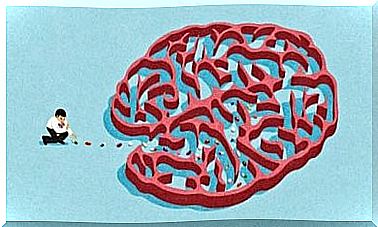Being Bilingual Can Reduce The Risk Of Alzheimer’s

Being bilingual has many social and psychological benefits. But did you know that it is also good for the brain? Researchers have discovered some very interesting cognitive effects of being bilingual. For example, knowing two languages could make it easier to recover after a stroke. It can even delay the occurrence of dementia.
In fact, more and more studies are claiming that speaking more than one language can delay or prevent Alzheimer’s disease. A Canadian study from 2018, published in the journal Neuropsychologia , found that being bilingual changes the structure of the brain in a way that can be linked to increased resistance to Alzheimer’s and mild cognitive impairment.
Older studies have also made very interesting discoveries in this field. One of them was published in the journal Neurology in 2013, and noted that speaking two languages could delay Alzheimer’s by at least 4.5 years. The researchers behind the study later suggested that being bilingual can contribute to the development of certain parts of the brain with responsibility for executive functions and basic mental processes, such as attention.
While these studies were mainly theoretical, a later study has used MRI data to study brain regions associated with memory, which are usually affected by Alzheimer’s and its precursor, mild cognitive impairment (MCI).
According to the researchers, this is the first study that not only assessed the areas of the brain that control language and perception, but also established a connection between these areas and the memory of a group of people with Alzheimer’s disease.

Being bilingual can counteract brain damage
The study analyzed:
- 34 multilingual participants with mild cognitive impairment (MCI)
- 34 monolingual participants with MCI
- 13 multilingual participants with Alzheimer’s disease
- 13 monolingual participants with Alzheimer’s disease
It is important to note that the researchers studied the temporal lobe, which plays a major role in the development of memory. They also studied the frontal lobe and surrounding areas of the brain.
The researchers discovered that the multilingual participants in both groups had thicker cerebral cortex in the areas related to cognitive control and language. The results were comparable among native Canadians with MCI, which ruled out immigration as a complicating factor.
Therefore, this study supports the hypothesis that multilingualism is a protective factor, and may increase the thickness of the cerebral cortex and the amount of gray matter. It also demonstrates the structural differences between patients with Alzheimer’s and those with mild cognitive impairment.
In addition, the results contribute to the amount of research that shows that speaking more than one language is a lifestyle factor that improves cognitive reserves. Cognitive reserves are like a drawer, where your brain stores the ability to meet challenges using knowledge and alternative ways to solve a task.

Being bilingual has many benefits. Below we take a look at what these benefits are, so you get a better understanding of why speaking multiple languages is important for brain function.
The cognitive benefits of being bilingual
- Being bilingual helps prevent dementia. For bilingual adults with Alzheimer’s, it takes twice as long for symptoms to develop, compared to monolinguals. The mean starting age for dementia symptoms in monolingual adults is 71.4, while the average is 75.5 for bilinguals.
- Being bilingual helps you concentrate on tasks. Bilinguals have better concentration than monolinguals. They are better at identifying relevant information.
- Being bilingual improves cognitive abilities. Bilinguals are more attentive and have more active brains, even when they only use one of the languages they can.
- Being bilingual increases the amount of gray matter. The gray matter is responsible for processing language, memory and attention. Bilinguals have a higher density of gray matter than monolingual individuals.
- Being bilingual improves memory. Learning a foreign language means having to remember grammar rules and many new words. This mental challenge improves memory, and therefore bilinguals are better at remembering, for example, lists and sequences.
- Being bilingual improves the ability to make decisions. Bilingual people often make more rational decisions. They are also more confident in themselves and the decisions they make after thinking with a foreign language.
- Being bilingual makes you better at using your mother tongue. When you learn another language, you focus a lot on grammar and sentence structure. This means that you also generally become more aware of language. Learning a foreign language makes people better at communicating, editing and writing.
Start learning a new language today!
Most people know that it looks good on your resume that you know several languages, and that it can be useful when you travel to other countries. But the benefits of speaking more than one language go much further than that. With all the research that shows the benefits of learning a new language, there is no doubt that it is worth trying. If you are not bilingual yet, what are you waiting for?









